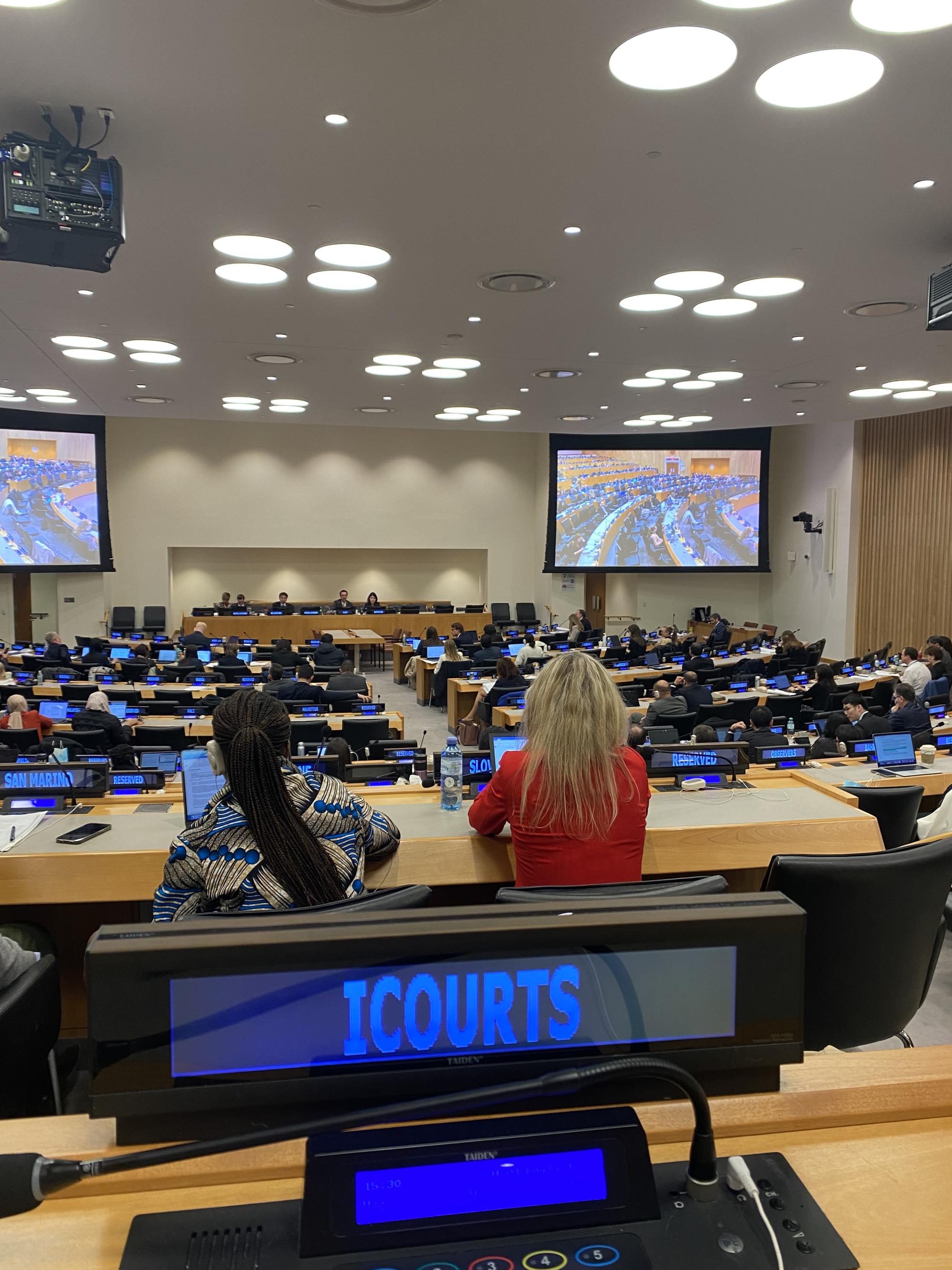Conducting Observation Sessions at the United Nations Commission on International Trade Law
Conducting Observation Sessions at the United Nations Commission on International Trade Law

As part of my PhD dissertation, I conduct observation sessions at the UNCITRAL Working Groups III (WGIII), where a possible reform of investor-state dispute settlement is being discussed since 2017. Every year, delegates from states and other stakeholders meet three to four times in Vienna or New York City to negotiate the future of international investment dispute settlement.
As of today, most investment disputes are settled through arbitration. Some delegates argue in favor of maintaining recourse to arbitration, while others seek to reform or even depart from it. For instance, the European Union and its Member States advocate for replacing arbitration with a court-like dispute settlement mechanism. My research focuses on the EU proposal.
As a PhD researcher, I am fortunate to conduct observation sessions in person at the WGIII. This is possible because my research centre, the Centre of Excellence for International Courts (iCourts), secured NGO accreditation during the early stages of the reform.
While this direct access is invaluable, it can be difficult to conduct observation sessions as a young researcher. Obstacles include lack of experience in a multilateral international forum, limited credibility as a young researcher talking to senior diplomats and jurists, and the fact that everything happens so quickly.
Although this direct access is invaluable for a young researcher, I nevertheless encountered several obstacles while observing the WGII sessions. These include my lack of experience in navigating a multilateral international forum, my limited credibility as a young researcher approaching high-ranking diplomats and lawyers, and the fact that everything happens so quickly.
After more than a year of observation sessions in Working Group III and interviews with state delegates, this blog post provides five ideas that would have helped me in the initial phase of my fieldwork. These reflections are intended to be relevant for other young researchers conducting fieldwork in a multilateral setting.
- Other scholars are your best allies. Go talk to them and let them show you how to approach state delegates. Some will even introduce you directly to key potential informants.
- Take notes of everything that crosses your mind while observing. Trust me, if you see or hear something, it might become very valuable in the near future.
- Arrive early at the premises and leave as late as possible. And be sure that you miss nothing in between. Breaks and lunch time will possibly be the busiest parts of your day.
- Get up and go introduce yourself to potential informants. But make sure that you do so at the right moment. For example, when transiting to the lunchroom or in the queue at the coffee in the morning.
- Record your thoughts of the day right after leaving the premises. Speaking is often more efficient than writing and every detail matters!
In closing, all young researchers face challenges while conducting fieldwork for the first time. One of the best pieces of advice I received by an experienced empirical scholar is to remain flexible during the process of collecting data and adapt to every situation that may emerge along the way.
by GF Larouche
